Three interesting games and a load of cake! We started with Peter Merritt’s 1814 political game which looked at how Napoleon’s Marshals dealt with the oncoming defeat of France and the transfer of power. Following that Andrew Hadley brought out his game about the Athenian invasion of Sicily. We then finished with Rob Cooper’s game about the seizure of the Mecca Grand Mosque in 1979, complete with head-dress.
1814 and all that
Peter put on this game to try out some ideas about how you could run a game about the decline of the French First Empire. The players were mostly Napoleon’s Marshals (although Jim Wallman was Napoleon). There was an interesting mechanic of collecting cards to show which of the likely candidates for ruler of France you could evidence support for (five in total, including Napoleon, Louis XVIII, Bernadotte, Napoleon’s son and A.N.Other-Bourbon). The decisions per turn were relatively simple, and the operational game was quite abstract, so no real need to pay attention to it as a Marshal.
We had a good post-game discussion for this, helped by Jim’s notes which he’d made as Napoleon was under-worked. I’m not familiar with the actual politics of the period, so will confine comments to some of the mechanical aspects rather than the rest of it. There could be an interesting game to be had with the Marshals deciding to attribute their actions to either military or political activities (with enough actions per turn to be able to do a little of both when required). Without a played Napoleon the Marshals have to work collaboratively initially to keep France in the war long enough for them to build some support for a likely new ruler. They also need to try and choose (as a small faction) how to prosecute the war in a way that will bring their chosen favourite to the top of the list for the allies.
One of the ways to modify the current game to support this would be to explicitly get the Marshals to club together in the Paris crisis phase to work collaboratively to deal with the crises, perhaps using a hidden card in the pool way to resolve it, like the Battlestar Galactica board game. For those that haven’t been lucky enough to play BSG each crisis has a value and a suit (colours in BSG) that are needed to resolve it. Cards that don’t help add to the difficulty of resolution (allowing players to secretly sabotage things). This would allow them to either club together to resolve things while they want to prolong the game, or to swiftly end things when the time has come for Napoleon’s end.
Added to this there could be some stacked decks with support for each of the candidates, allowing players to take cards to suit their chosen candidates. It would also support attempts to get rid of support for other cards and having a broad range of cards for dealing with crises but at the players choice rather than being dealt completely randomly.
On the operational side, I broadly agreed that the map could be further simplified from a point to point system to a track for each of the main armies, although possibly with some cross over points to allow forces to be shuffled from track to track. The mechanisms could be relatively simple, some sort of stacking limit for the allies, units move one spot at a time (or even the die roll mechanism allowing 0,1,2 spaces according to weather, command allocation etc). Any track with Napoleon in it would remain static (assuming Napoleon is supported by troops and the odds aren’t too great against the French) but with the cost to the Marshals that Napoleon in the field makes it harder to keep control of Paris. Some simple battle rules to show whether or not contested advances happen would also be useful, and then one or two French Marshals could probably handle the whole thing on their own (although others may be required to allow sufficient military actions to happen).
Lastly the end game piece probably needs some thinking about, and perhaps a way to be influenced by the players.
Athenian Invasion of Sicily
I didn’t quite catch the proper name of this game. Andrew Hadley continued his series of ancient Mediterranean themes games with this one about the Athenians invading Sicily around 415 BC during the Peloponnesian war in the late 5th Century BC (431-404 BC). We were randomly dealt some key characters from the Athenian assembly and given a few pages of background telling us what happened, key arguments for and against the invasion and some intelligence of the cities on Sicily and nearby (allegiance, attitude to Syracuse, military forces etc). We then engaged in a debate to agree a plan, commit force levels and appoint command.
Once we’d sorted that out we began a campaign, although time pressure (and having a third game to play) meant that we had to wrap up relatively early into the execution of the plan. There were some interesting aspects to this, but in a lightly implemented way. There were pre-printed cards with a variety of words (one per card, e.g. Treachery) which could be used to get a +1 to a relevant die roll. Only one of these could be used per turn unless the action was planned, committing you to it regardless of other events. There were also some personal bonuses, e.g. +2 military for generals. Each situation was assigned a difficulty score by Andy to be beaten on a d12 plus any bonuses. For our small game this didn’t present any problems, but in a larger game there would need to be more guidance on probabilities and scores etc to ensure consistency and players being able to resolve some of it themselves.
Certainly this was a fairly workable and enjoyable game that needs a longer time slot to do it justice.
Seizure of the Grand Mosque (1979)
Our third and last game was a kriegspieled scenario run by Rob Cooper about the seizure of the Grand Mosque in Mecca in 1979 (on the first day of AH 1400) by some Islamic dissidents claiming to be the followers of the Mahdi.
In the scenario we were all playing either members of the Saudi royal family (and by extension the Government) or, in Jim Wallman’s case, the senior cleric on the Ulema and spiritual adviser to the King. Daniel was King Fahd, Richard Hands as the Crown Prince, Peter Merritt as the second in line, Dave Boundy as the Minister of the Interior, Andrew Hadley in command of the Saudi Arabia National Guard (SANG) and myself as the Defence Minister. Giles also arrived about now, but decided to observe rather than participate. Â To add flavour and get us all into the appropriate spirit for our characters Rob had brought along some headgear, you can see the pictures that Daniel took on facebook. We also had to stop every now and then for prayers, underlining our devotion.
There is a good account of the historical events on wikipedia, and I’m not going to repeat that. However the scenario opens with a group of Islamic dissidents (variously numbered from 30-40 up to about 500) seizing control of the Grand Mosque during prayers, locking the gates and shooting some policemen. At the time there were somewhere in the region of 50,000 pilgrims inside the complex, which is vast, several hundred metres across in each direction.
The Saudis have two initial problems, the first is that they don’t have appropriate resources close enough to respond immediately, it takes time to assemble a response force. The second problem is that violence is not allowed in the Grand Mosque, and also the Ulema (the religious council) are unsure whether or not the chap claiming to be the Mahdi is an apostate, or the real thing.
So there was a soft start to the game, during which I ordered up all my airborne special forces and also a company of tanks and some APCs just in case. Although the latter would take some days to arrive.
The first response was from the police, being locals. All they could do was herd the fleeing pilgrims away from the Grand Mosque. Any time that they went close they got shot at from the minarets. Shortly afterwards some of the local SANG turned up and tried unsuccessfully to approach the Grand Mosque. About six hours in a company of my Airborne turned up and set up Observation Posts all round the Grand Mosque to see where the terrorists were positioned. We also tried to get some helicopter recce done, but the terrorists used a .50 cal on the helos, so they quite reasonably gave that up as a bad job.
A family conference call took place while all this was getting under way. There was a unanimous agreement to censor all media and cut off all communications with Mecca other than official government lines. We also refused to even acknowledge to the outside world that there were any problems.
Also after some deliberations the Ulema decided that we could use force to eject the terrorists from the Grand Mosque, although we had to be careful not to damage the Grand Mosque and also to avoid harming any of the pilgrims inside. Certainly attacking the minarets to take out the snipers was off the table.
By the following day we had a few hundred police, a similar number of SANG and just over a Battalion of Airborne forces. So I decided to make an attempt on the long gallery which was a panhandle to the main part of the Grand Mosque complex. This meant that there was some cover from fire on the approach to it from the street on the outside as it was in dead ground from the minarets. Waiting until dark we brought each of the minarets under small arms fire while two companies of Airborne forces made their way into the Grand Mosque. Initially things went well, an entry was effected using explosives and both companies passed inside, when radio comms were lost because of the thickness of the walls. Follow on SANG and police were then met by the survivors of an ambush retreating back out of the complex. Apparently the supposed ‘Mahdi’ had ambushed them, he had been seen to be immune to small arms fire, escaping being hit under intense fire, and also had been picking up grenades and throwing them back.
By now we were coming under pressure to get the Grand Mosque cleared in time for Friday prayers (it was Wednesday night that the first assault went in). The Ulema decided, after much more deliberation, that while the Grand Mosque was inviolate, this only really applied to the original area and not the entire complex. So the only area we couldn’t use violence in was the central courtyard.
Early on Thursday morning another Airborne Battalion arrived, as did two companies of APC mounted infantry. The tanks were en route on transporters and were due for early afternoon on the Thursday. SANG and the Police also had their commandos in Mecca as well. The gloves were off, which the family council reluctantly agreed. My Airborne support companies used TOW missiles on the minarets and each of the three doors. Not waiting for the tanks to be ready, we put APCs through each of the main gates and followed through into the complex en masse. This co-ordinated response seemed to work and we rapidly gained control of the complex, although it was clear after an hour or two that we didn’t have the number of prisoners (or bodies) that we had expected, and that some of the notable personages were missing.
It transpired that they were in the undercroft, which fortunately was on a suitably massive scale that we could use the APCs to break through the barricades to get into. At this stage time stood against us and Rob hand-waved the second stage of the game to get us to a wash-up where he told us how we’d done compared to real life. Surprisingly to us it turned out that my ‘gloves off’ approach had been far more restrained than had happened historically!
- The Wisdom of Napoleon (adask.wordpress.com)
Like this:
Like Loading...
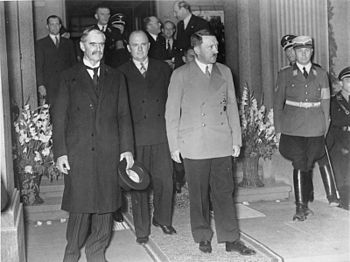




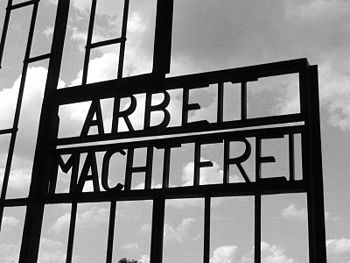









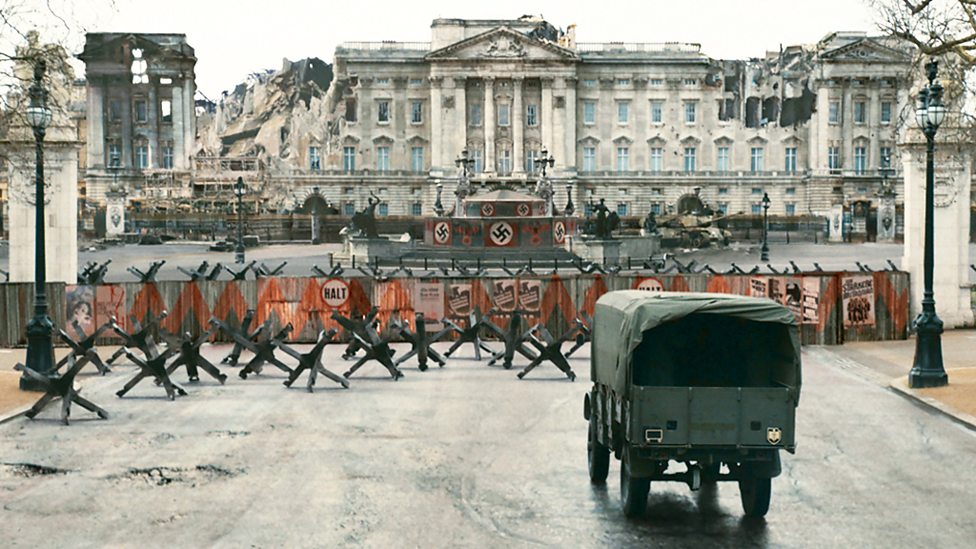










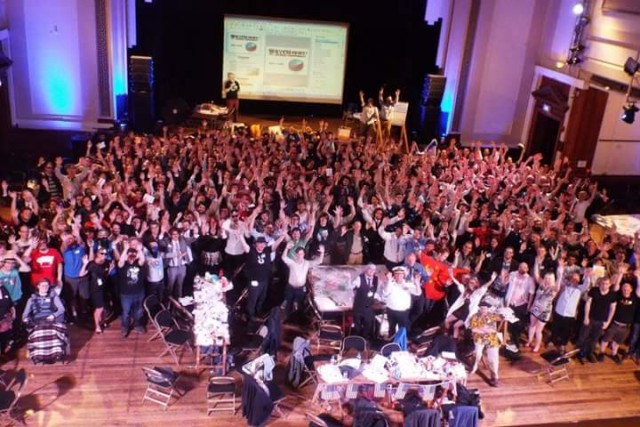
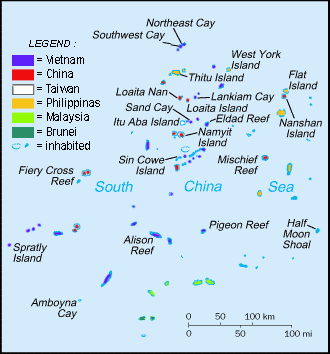



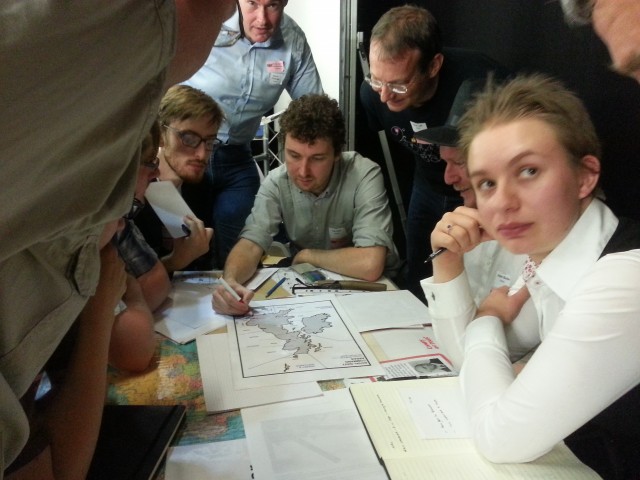
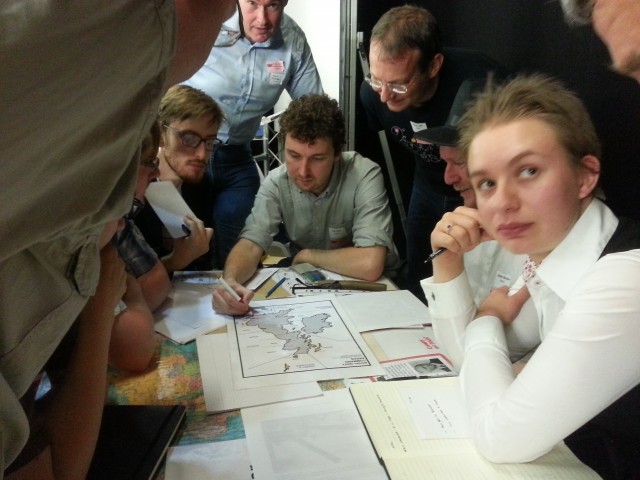
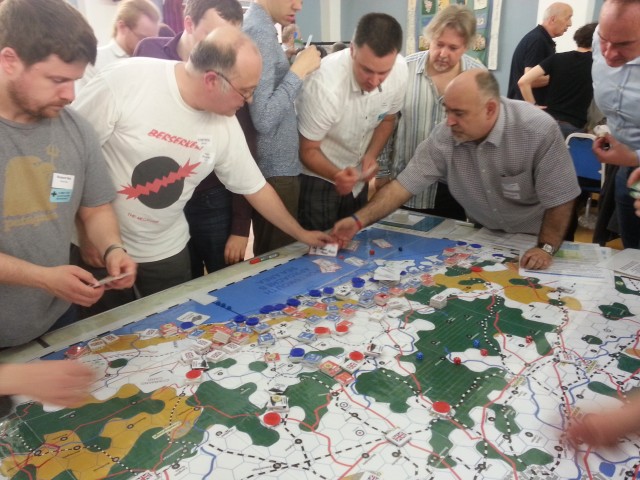
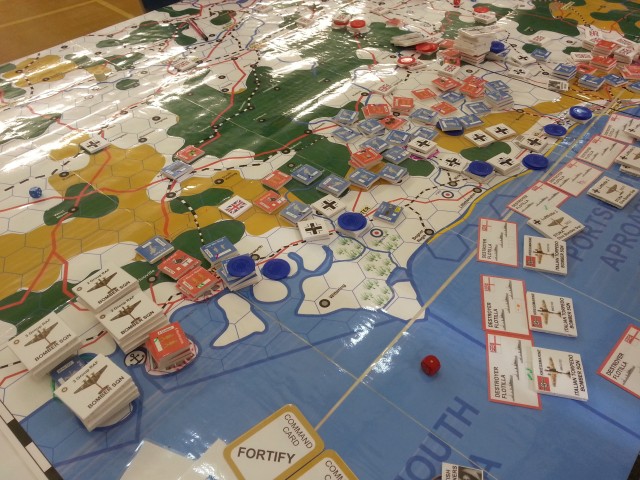










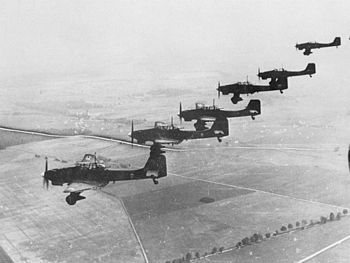
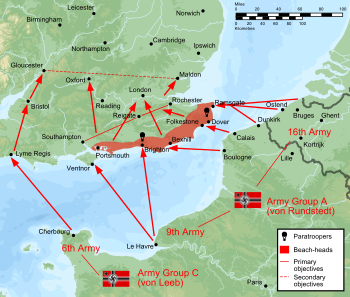

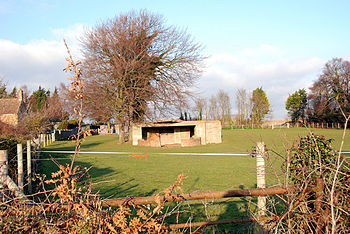






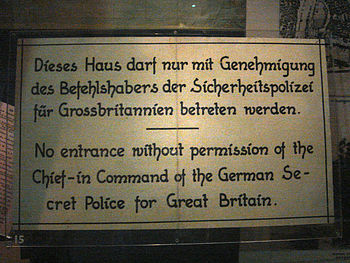
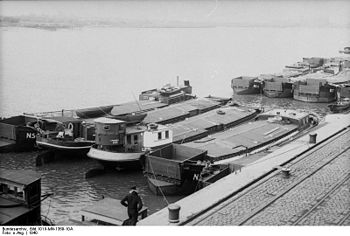
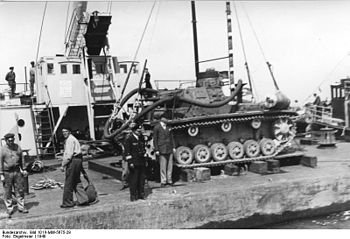
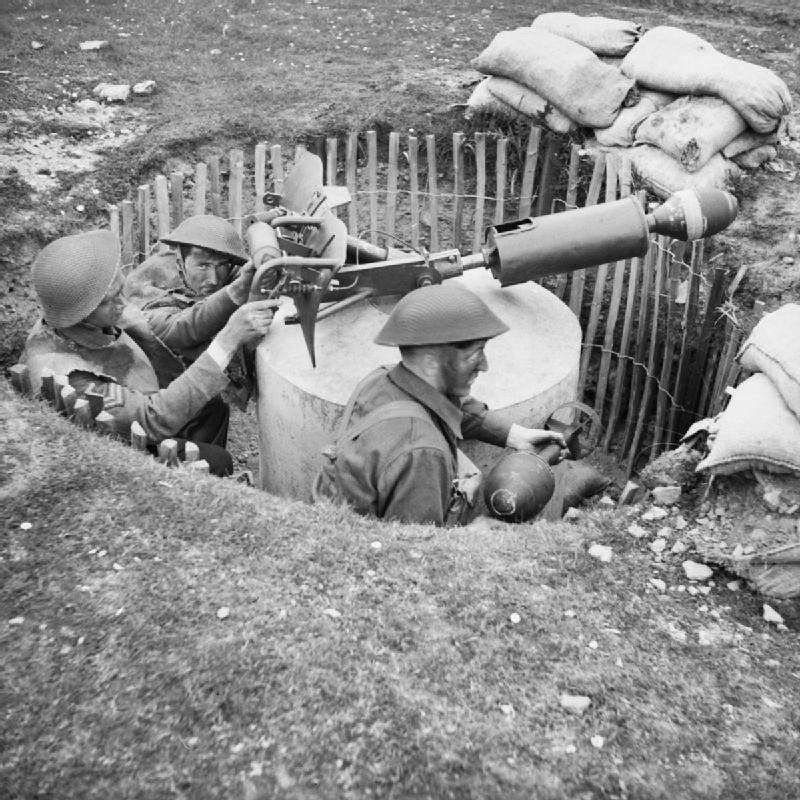





















![Reblog this post [with Zemanta]](http://img.zemanta.com/reblog_e.png?x-id=7fbdc819-6648-446f-a54d-94f64276c366)